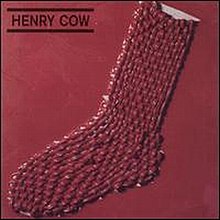In Praise of Learning
| In Praise of Learning | |||||
|---|---|---|---|---|---|
 |
|||||
| Studio album by Henry Cow with Slapp Happy | |||||
| Released | May 1975 | ||||
| Recorded | February–March 1975 | ||||
| Studio | The Manor, Oxfordshire, England | ||||
| Genre | Avant-rock | ||||
| Length | 37:28 | ||||
| Label | Virgin (UK) | ||||
| Producer | Henry Cow, Slapp Happy and Phil Becque | ||||
| Henry Cow chronology | |||||
|
|||||
| Slapp Happy chronology | |||||
|
|||||
| Professional ratings | |
|---|---|
| Review scores | |
| Source | Rating |
| AllMusic | |
| Robert Christgau | B |
In Praise of Learning is an album by British avant-rock groups Henry Cow and Slapp Happy, recorded at Virgin Records' Manor studios in February and March 1975. It was the second of two collaborative albums by the two groups and was released in May 1975.
In Praise of Learning was Henry Cow's most overtly political album. Printed on the back of the album cover is filmmaker John Grierson's quote "Art is not a mirror – it is a hammer", and the Tim Hodgkinson 16-minute composition, "Living in the Heart of the Beast" made explicit Henry Cow's left wing political leanings, with Dagmar Krause's powerful voice adding a new dimension to their music. The Anthony Moore/Peter Blegvad song, "War" had been recorded the previous year during the making of the first Slapp Happy/Henry Cow collaborative album, Desperate Straights (1975). Moore later rearranged the song for his 1979 solo album, Flying Doesn't Help. "War" was also covered by The Fall in 1993 for a BBC radio session and on Middle Class Revolt (1994).
"Living in the Heart of the Beast" began as an unfinished instrumental that Hodgkinson presented to the group, which was cut up and performed live in 1974 with improvisational sections added. One such performance, Halsteren was recorded in Halsteren in September 1974, and appears in Volume 2: 1974–5 of The 40th Anniversary Henry Cow Box Set (2009). After the merger with Slapp Happy, Hodgkinson commissioned Blegvad to write lyrics for the piece for Krause to sing. But after several attempts, Blegvad admitted that he was "out of [his] depth", and Hodgkinson wrote the lyrics himself.
...
Wikipedia
